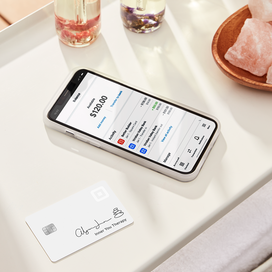Table of contents
Being a business owner means wearing many hats, from marketing manager to chief financial officer to chief innovation officer. But that doesn’t mean you need to do everything yourself.
Delegation is a critical part of running a successful business. Doing it effectively allows you to focus on tasks that play to your strengths, so you can have the biggest positive impact on your business. It also gives your team a chance to develop new skills and helps you build a motivated workforce that’ll help you reach your business goals.
But, let’s be honest. Delegation can be easier said than done. It can be nerve-wracking to outsource crucial tasks to team members, and it can also create logistical problems when you add more cooks to the kitchen.
Three steps to successful delegation
Successful delegation starts with an honest look at which tasks are most meaningful to you, and which ones you can take off your plate. Once you have a list of tasks to delegate, these top tips can set you up for success.
1. Clarify roles and responsibilities.
The first question you’ll need to answer is: Who’s going to be responsible for what? Taking an inventory of the skills, strengths, and goals of each team member can help you identify the right person for the job.
From there, work with each team member one-on-one to set expectations and provide the training needed to complete the task correctly.
2. Maintain an open line of communication.
Delegation is a balancing act. You want to be able to help your team when they need it, without micromanaging. And open communication is essential to offering support while making space for learning.
Build trust with your team by being transparent about your intent to help, and create space for them to develop their own processes if they don’t impact the final result. As your team gains confidence in their new roles, ease up on the communication, but make it clear they can ask questions or solicit feedback at any time.
3. Use tools and technologies to enhance collaboration.
You don’t need to learn the art of delegation alone, and there are plenty of tools to help you work with your team.
Project management tools can help you map out projects and milestones to set clear expectations and check in on your team’s progress as they work. Communication tools — video, audio, and chat — help you keep in touch with your team to offer guidance on the go. Cloud-sharing tools allow you to share documents instantly for live collaboration.
How debit cards can help you delegate
Of course, financial tools play an important role in delegation, and having tools like Square Debit Cards for your business is critical to working effectively. You can have more than one debit card for your business so that you and your team can streamline payments.
Using secondary cards can also bring you and your business partners closer. That’s what The Pink Cupcake Creations owner Ashley Snyder and her husband discovered when they started using Square Debit Cards for their cupcake business.
“I started the business before my husband came into the picture, so I think there’s an underlying feeling of being less of a partner. [Before getting a card,] we’d routinely have, ‘I need this receipt reimbursed,’ or, ‘Didn’t you already get paid for this?’ bickering,” Snyder explains. “Using the second debit card has been great. My husband was going out late one night for something, and I stopped him at the door and asked if he needed the card. He smiled and reminded me that he has his own now.”
Having more than one debit card can help your employees save time by not waiting for approval to make a purchase to make a purchase or by allowing them to optimize their own time. For example, an employee of yours might be able to fill a company car with gas on the way to an event without having to wait to get a hold of the company’s debit card.
Read on to learn our top tips for delegating effectively and how leveraging Square Debit Cards can make delegation easier.
Using team debit cards, can empower you and your team to make purchases when you need them. You don’t need to give up your card — or your purchasing ability — to delegate. Instead, your team can work independently, and you can focus on what’s most important: running your business.
Streamline expensing and reimbursement.
Let’s face it: No one likes expense reports. Tracking receipts takes time, and transferring money to reimburse employees can involve transaction fees. Plus, employees may not feel comfortable fronting the cost of purchases on their personal cards. With Square Debit Cards, your team can use up to five business cards directly and avoid the need for reimbursement altogether.
Delegating doesn’t need to be complicated, and the right tools can help your team work independently to move your business forward. Using multiple debit cards empowers you and your team to make purchases when you need to — without the need to micromanage the card or navigate expenses and reimbursement.
Getting extra debit cards is easy with a Square Checking account, which allows you to order up to five Square Debit Cards at no additional cost.
![]()












